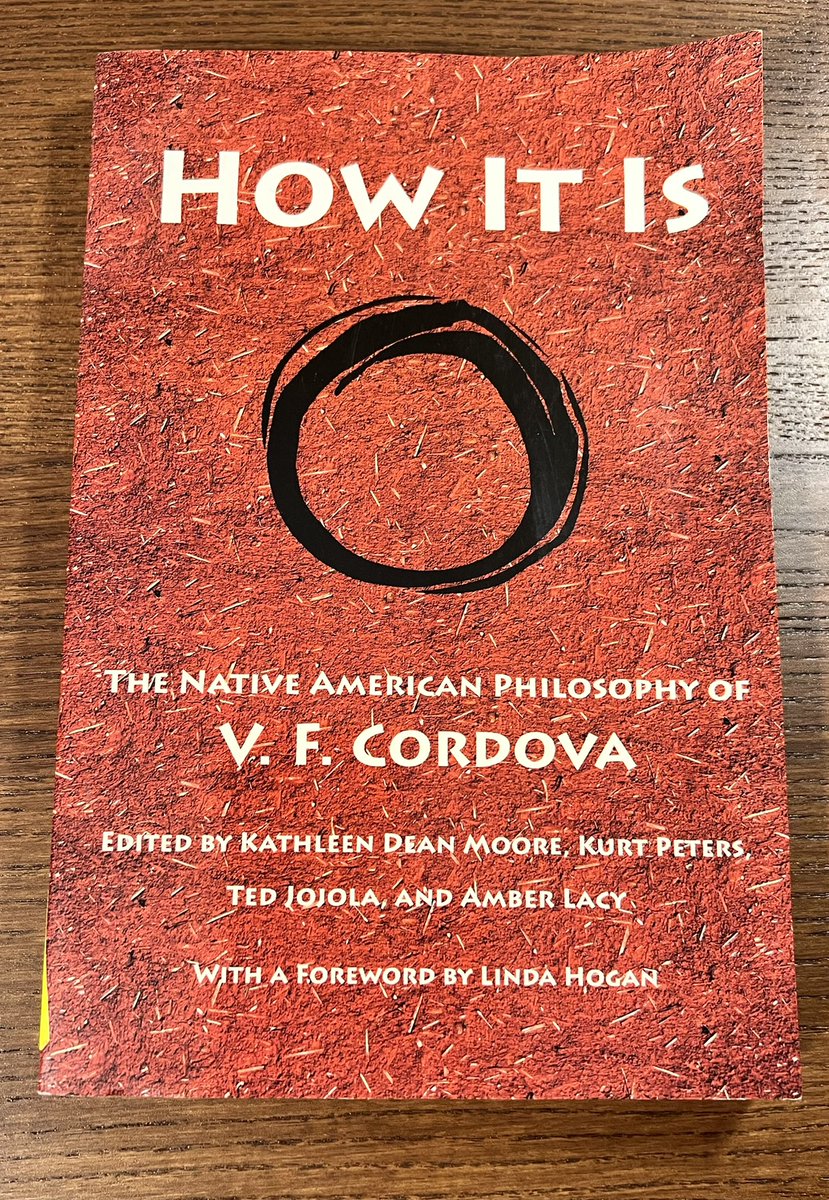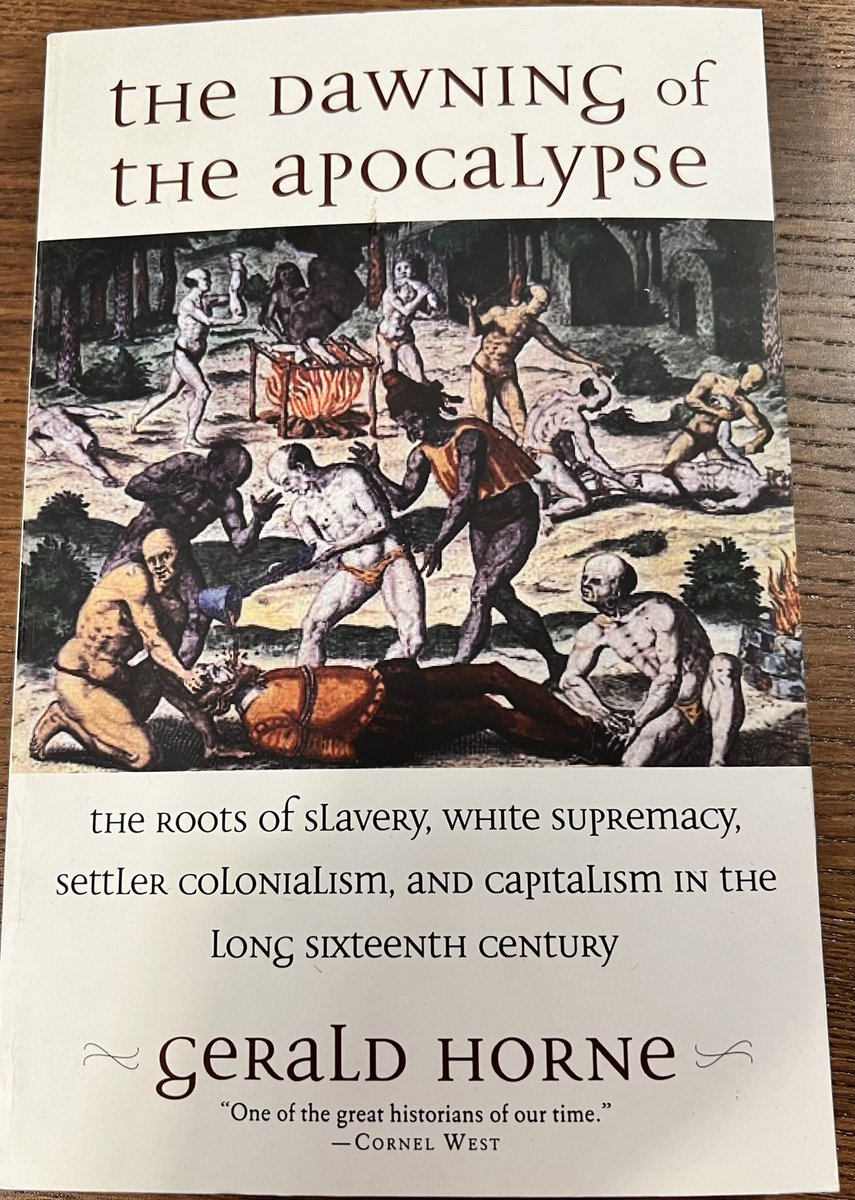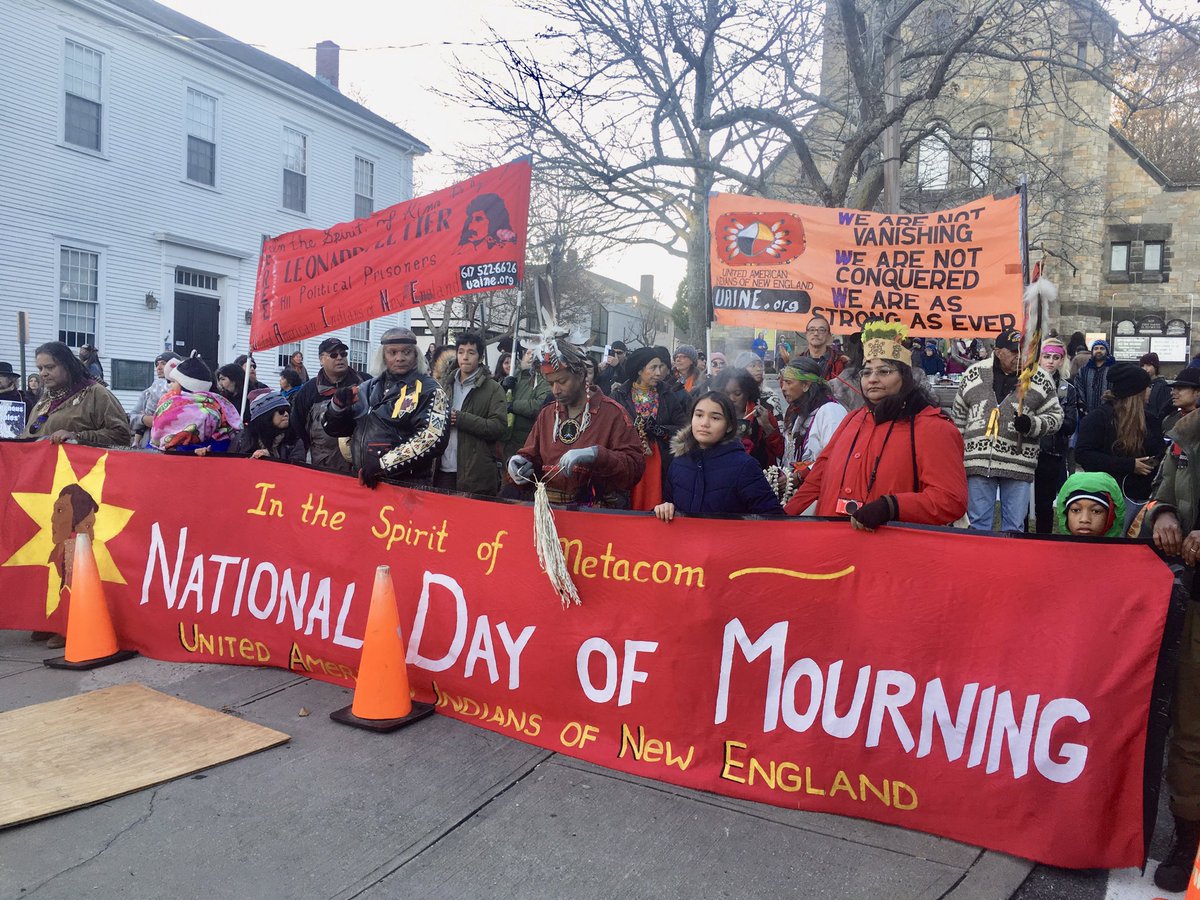
Here’s what I read in 2021—partial list.
We lost @MaracleLee this year. She had a complex legacy, didn’t alway get things right, but left us with a revolutionary legacy as an Indigenous feminist and communist. Her book Memory Serves: Oratories is a collection of her speeches. 

@KeeangaYamahtta’s updated edition of From #BlackLivesMatter to Black Liberation makes what was already a great book better. She is one of the leading left thinkers of our time. ❤️ 

Boarding schools are in the news. So read Luther Standing Bear’s _My People the Sioux_, which gives a first-hand account of the notorious Carlisle Industrial Indian School. 

@NatalieGDiaz deserves all the recognition she gets—and more. We met in Palestine, and I’ve been following her work since. Read _Postcolonial Love Poem_. 

Viola F. Cordova develops a Native philosophy in contrast to Western philosophy. _How It Is_ is under-read and undervalued. Why are we still reading so many Europeans when our own traditions are older and more grounded in the reality of this land? 

There are many Green New Deal proposals out there. Few, however, take serious how anti-imperialism must be front and center like in @maxajl’s _A People’s Green New Deal_. 

I’m a fan and follower of @dereckapurnell’s work and _Becoming Abolitionists_ doesn’t disappoint. It’s a book of this moment and book of possibility. 

@rafiazakaria is wonderful writer and critic, especially her work with @thebafflermag. _Against White Feminism_ is what it sounds like but so much more. The book is a critique and manifesto against the imperialist impulses and behaviors of a northern bourgeois feminism. 

I read _On Necrocapitalism_ after listening to a @RevLeftRadio interview with @comrade_jo_may and @devinzshaw. Reading this book was like walking back in time to the moments of rupture and possibility in 2020, as well as the horror and betrayal that followed in 2021. 

_A Short History of Blockades_ by Leanne Betasamosake Simpson is a short and quiet meditation on Indigenous resistance and land praxis. 

My brother @manolo_realengo and Cuban comrades sent me this book. _Dreaming Mother Earth_ is beautiful biography of the Cuban Indigenous elder and revolutionary Francisco “Panchito” Ramirez Rojas. 

@manolo_realengo and @vijayprashad highlight the revolutionary intellect and compassion of Fidel Castro. I’m happy that 1804 Books @PeoplesForumNYC is selling @LeftwordBooks in North America. 

_Walter Rodney Speaks_ is a great introduction and grounding into the life and thought of one of the greatest revolutionaries and thinkers of the twentieth century. 

_Four Hundred Souls_ edited by @DrIbram and @KeishaBlain is beautifully conceived and executed project of history. The book should be read not only for its historical content but also it’s conceptual methodology and pedagogy, privileging the multitude of Black experience. 

I’ve only started @DrRupaMarya and @_RajPatel’s _Inflamed_. What I can say is that it is timely and urgent. An entire section of US society has been deemed disposable as the pandemic ensues. And yet, healthcare and food justice is still advertised as a pipe dream… 

If you haven’t read Gerald Horne, why not? I noticed historians don’t teach his work. And yet he can’t be ignored. Start with the first—but last published book—in his settler colonialism trilogy: _The Dawning of the Apocalypse_. 

I’m almost finished with @doctora_nature’s _Fresh Banana Leaves_. It’s a book of personal and historical narrative of Indigenous migration, genocide, and war while foregrounding Indigenous scientific knowledge. It publishes next year. You don’t want to miss it. 

Aijaz Ahmad is one of the great Marxist thinkers of our generation. @vijayprashad interviews him in _Nothing Human is Alien to Me_ on everything from post-modernism to imperialism. It’s a short but thorough introduction to Ahmad’s thought. 

_Cedric Robinson_ by @ddhewty is a great overview and introduction of one of the pre-eminent Black radical thinkers and historians. Also, I kept asking myself, why wasn’t this book written earlier? 🤔 

The Oceti Sakowin made one of its first treaties with the Haudenosaunee Confederacy. These two nations have been at the forefront of Indigenous movements as warrior societies. _Basic Call to Consciousness_ articulates a Haudenosaunee vision of justice. 

“Innocence is the weakest defense” are the opening lines of Leonard Peltier’s _Prison Writings_. Many have spoken for or about the longest serving Indigenous political prisoner. But his own words are still the most compelling. 

@nhannahjones’ _The 1619 Project_ has made more waves than any work of history in recent memory. This book is wonderfully conceived and well-written. Read it before you critique it. 

• • •
Missing some Tweet in this thread? You can try to
force a refresh






